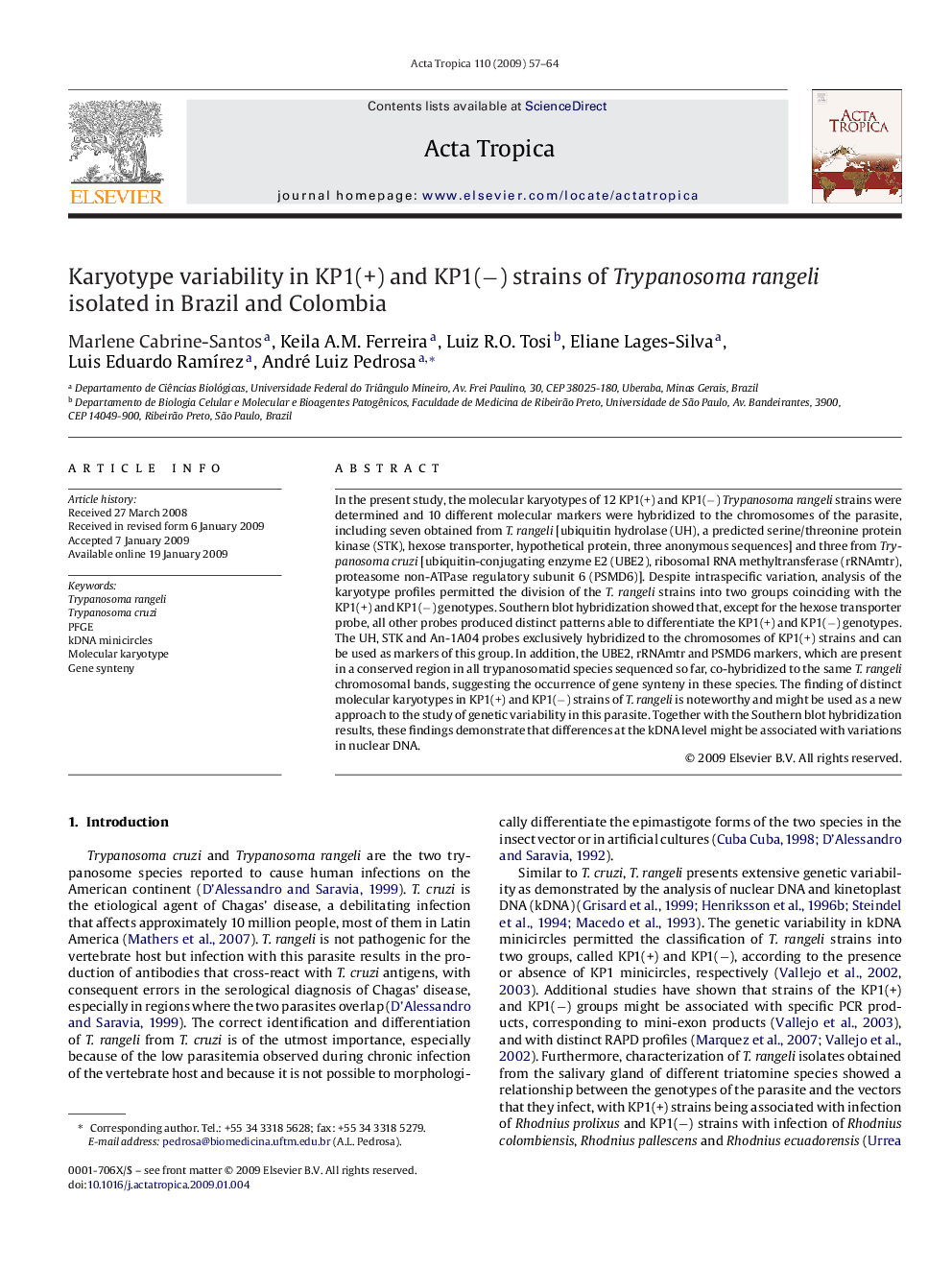| Article ID | Journal | Published Year | Pages | File Type |
|---|---|---|---|---|
| 3394333 | Acta Tropica | 2009 | 8 Pages |
In the present study, the molecular karyotypes of 12 KP1(+) and KP1(−) Trypanosoma rangeli strains were determined and 10 different molecular markers were hybridized to the chromosomes of the parasite, including seven obtained from T. rangeli [ubiquitin hydrolase (UH), a predicted serine/threonine protein kinase (STK), hexose transporter, hypothetical protein, three anonymous sequences] and three from Trypanosoma cruzi [ubiquitin-conjugating enzyme E2 (UBE2), ribosomal RNA methyltransferase (rRNAmtr), proteasome non-ATPase regulatory subunit 6 (PSMD6)]. Despite intraspecific variation, analysis of the karyotype profiles permitted the division of the T. rangeli strains into two groups coinciding with the KP1(+) and KP1(−) genotypes. Southern blot hybridization showed that, except for the hexose transporter probe, all other probes produced distinct patterns able to differentiate the KP1(+) and KP1(−) genotypes. The UH, STK and An-1A04 probes exclusively hybridized to the chromosomes of KP1(+) strains and can be used as markers of this group. In addition, the UBE2, rRNAmtr and PSMD6 markers, which are present in a conserved region in all trypanosomatid species sequenced so far, co-hybridized to the same T. rangeli chromosomal bands, suggesting the occurrence of gene synteny in these species. The finding of distinct molecular karyotypes in KP1(+) and KP1(−) strains of T. rangeli is noteworthy and might be used as a new approach to the study of genetic variability in this parasite. Together with the Southern blot hybridization results, these findings demonstrate that differences at the kDNA level might be associated with variations in nuclear DNA.
